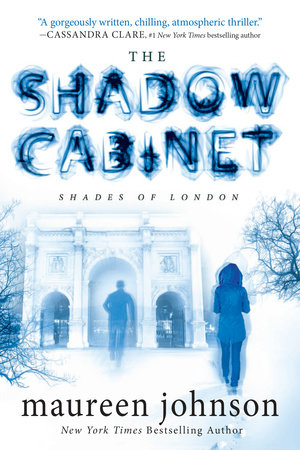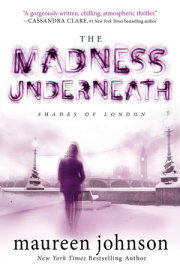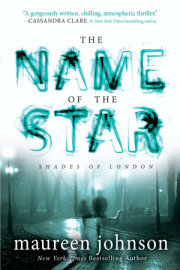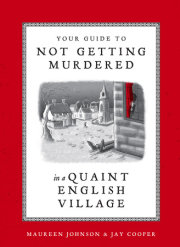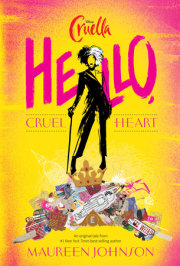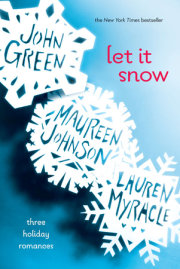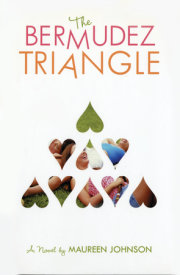The room was full of a soft December-morning light, a kind of gentle dove-gray color. Stephen was on the bed. Glasses off. Peaceful. Outside, London rumbled by as it always did and presumably always would.
“Rory, are you sure?” Thorpe said. “Are you sure it worked?”
It was just me, Boo, and Thorpe now. Thorpe was our overseer from MI5, someone I knew very little about except that he was young with white hair. Stephen had always been the one to deal with Thorpe, and Thorpe would make things happen. Security systems would be shut down, records altered, CCTV footage obtained, door opened. But Thorpe did not have our ability, our sight, and there was nothing he could do about what was happening now, in this hospital room.
Callum was gone—he had stormed out when he realized what I had done. Or, what I thought I’d done. It wasn’t like I’d made a choice. There had simply been no time to think of what it all meant.
Stephen had been dead for four minutes.
“I know he’s here,” Boo was saying. “We need to start looking. We do the hospital. We do the flat, both the old one and the new one. And if that fails, we come back here and we do it again. Yeah?”
I’d grabbed Stephen’s hand and hadn’t let go. I was a terminus, and if my theory was right, I had the power to pull him back—not to stop him from dying, but to make him a ghost.
“I mean . . .” Boo paced the side of the bed by the door, unable to remain still. “When Jo woke up, she woke up where she died. Most of them, we find them where they died. Not all of them, but most of them. A lot of them, anyway. Maybe we need to stay here. Or at least look around the hospital. But here? He’d probably come here? I mean, I think it can take a while sometimes?”
No one was listening to Boo.
“Do you know anything?” she asked me, her voice pitching high. “Did you feel something, or . . . ”
It took me a moment to shake myself out of my haze and realize I was supposed to answer.
“I don’t know,” I said.
“Rory, try. Try.”
“Is that a thing?” Thorpe asked. “Can you . . . feel them?”
“Rory,” Boo said.
She had broken the seal on my calm, and I felt a surge run through me. I saw it coming, like a big, flat wave off the shoreline, a wall of water about to crash down and take me away forever. I was not going to let that happen.
“Shut up!” I yelled across the bed. “Let me think.”
I had no idea what I was doing. I tried to remember what it was like in those last moments, when they’d told me he was dying, when I’d closed my eyes like this and taken his hand. So I did that. I grabbed his hand, which was warm, but not as warm as it should have been. It was Stephen’s hand, the one I had felt on my face last night, on the space under my shirt, along my belly where my scar was.
When we had kissed. My eyes were closed then too.
No muscle movement. His hand was an inanimate object. I squeezed harder. I tightened my eyes until starbursts appeared behind them.
Stephen. Where are you? Where are you? Where are you?
He had sighed into my mouth when we kissed.
Where are you where are you where are you . . .
There was no answer, no clear echo in my head, no hand gripping mine. I went harder, pushing into my own mind, recalling the very moments before, when it had all happened and his life support had been turned off. There was the whiteness, the rushing feeling, a pushing and a pulling, and a feeling of falling—
Suddenly, in my mind, I was back in Louisiana, standing in my uncle Bick’s bird shop, A Bird in Hand. I was imagining this, of course, but my mind had landed there quite naturally. Uncle Bick was behind the counter in his Tulane baseball cap, sorting a bunch of bird toys. I could smell birdseed.
The birds were allowed to fly free in the shop (he had a series of three doors you came through to make sure they were safe), so there was always a chance that a bird would land on your head. Or, more likely, bird poop would land on your head. I was always a little nervous in there. It never fazed Uncle Bick. Birds almost never pooped on him.
“Here’s the thing,” said the Uncle Bick in my head, “they actually want to be found. They’re not designed for the wild.”
He was talking about parakeets. Uncle Bick had a passion for finding the ones that were lost or released by callous college students, who regarded them as a school-year pet. They sat in the local trees, deeply confused by their situation. My uncle Bick drove around in his truck and rescued them (and got labeled a possible predator by the university security department for lingering by dorm room windows).
Except of course this wasn’t about parakeets. My brain was filtering information, and this was the format it had chosen.
“So how do I find him?” I asked Imaginary Uncle Bick. He pushed the box aside and adjusted his baseball cap.
“Parakeets never go far,” he said. “They’re not used to long flights or heights. They stick close to home. They never meant to leave.”
“I’m honestly not sure if I should be talking to you,” I said to my imaginary uncle. “I’m trying to find Stephen.”
“And I’m not your uncle,” said my imaginary uncle. “I’m your own head, telling you what you already know.”
“What does that mean? I don’t know anything.”
“Oh,” said my own brain, “you do.”
Copyright © 2015 by Maureen Johnson. All rights reserved. No part of this excerpt may be reproduced or reprinted without permission in writing from the publisher.

